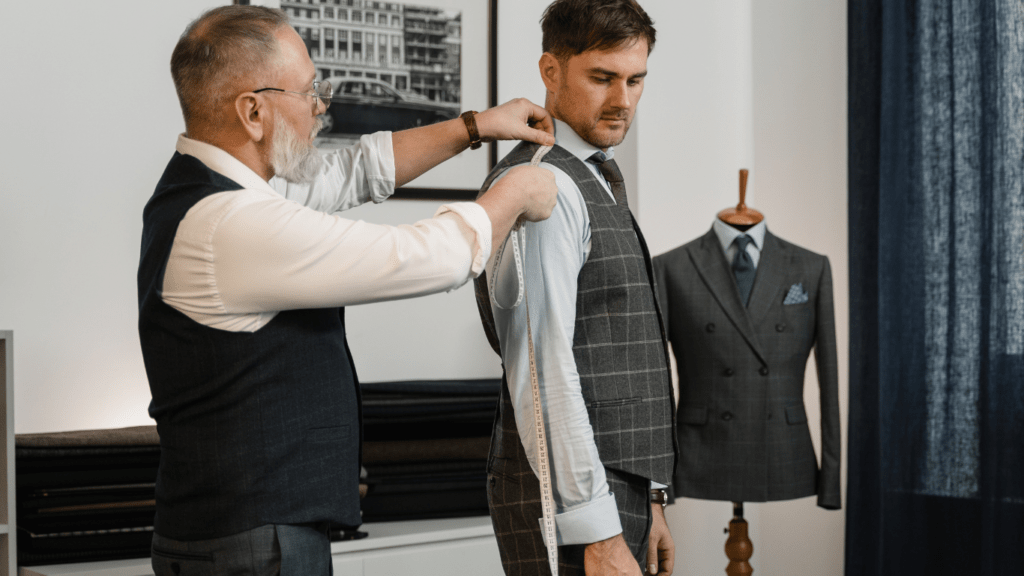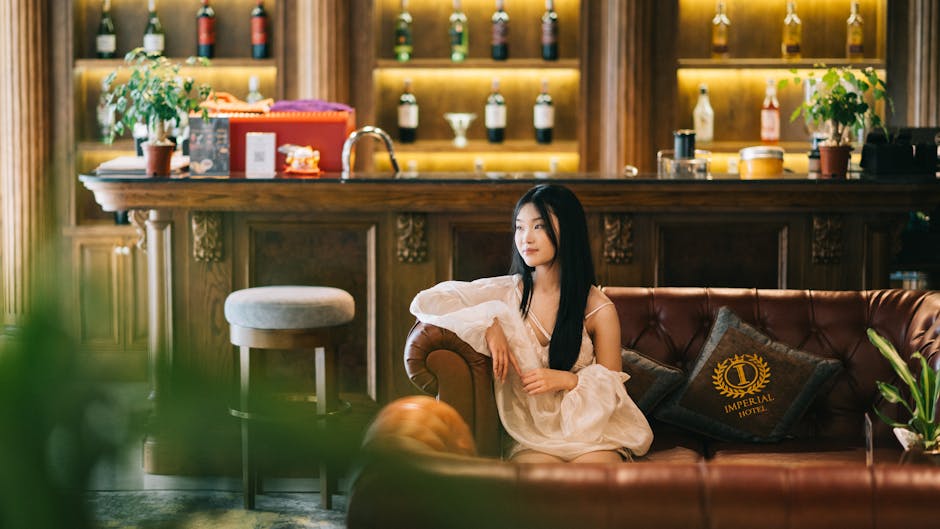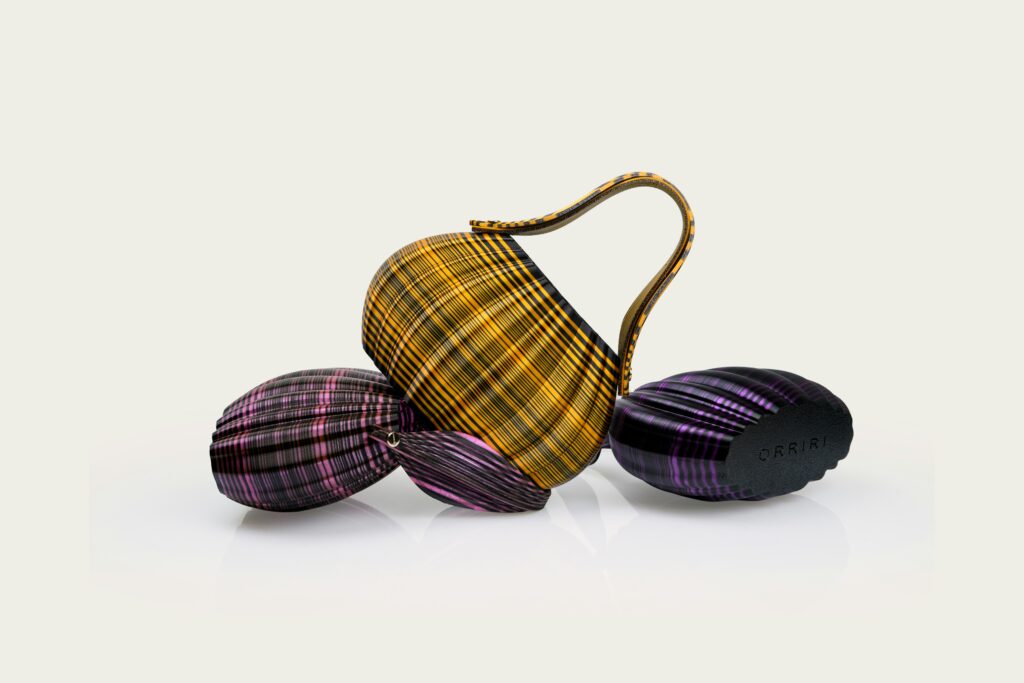In the world of fashion, bespoke luxury pieces are carving out a niche that caters to those seeking exclusivity and individuality. As a fashion enthusiast, I’ve witnessed a shift towards personalized, one-of-a-kind creations that reflect a unique sense of style and sophistication.
The growing market for bespoke luxury fashion pieces is reshaping the industry, offering discerning consumers the opportunity to own truly exceptional and tailor-made garments that stand out in a crowd. From custom-tailored suits to handcrafted accessories, the demand for bespoke luxury items is on the rise as more individuals value craftsmanship and attention to detail.
As I delve into this trend, I explore how designers and artisans are embracing the art of bespoke fashion to meet the desires of a clientele looking for more than just off-the-rack options. Join me on a journey through the world of bespoke luxury fashion, where exclusivity meets elegance in every stitch and fabric choice.
The Rising Demand for Bespoke Luxury Fashion
Embracing the era of customized elegance, bespoke luxury fashion is witnessing a surge in demand. As individuals increasingly seek unique and personalized clothing options, the allure of bespoke items has grown significantly.
From made-to-measure suits to meticulously handcrafted accessories, the market for bespoke luxury pieces is expanding to cater to discerning consumers’ preferences. Craftsmanship and attention to detail have become pivotal factors driving the appeal of bespoke fashion.
Consumers value the artistry and exclusivity that come with owning tailor-made garments that reflect their personal style. Designers and artisans are honing their skills in the realm of bespoke fashion, crafting exquisite pieces that resonate with a clientele looking for sophistication and distinctiveness in their attire.
The rise in demand for bespoke luxury fashion signifies a shift towards individuality and sartorial uniqueness. By offering custom creations that stand out in a sea of mass-produced items, bespoke designers are capturing the attention of fashion enthusiasts who appreciate the finer nuances of tailored elegance.
As the market continues to embrace the bespoke trend, consumers are indulging in the luxury of owning personalized fashion pieces that exude charm and exclusivity.
Factors Contributing to the Growth
Customization and Personalization Trends
In the bespoke luxury fashion market, customization and personalization play pivotal roles in driving its growth. I’ve observed that modern consumers value unique pieces that reflect their individuality and style preferences, leading to a surge in demand for personalized clothing and accessories.
Designers and artisans are increasingly focusing on offering customizable options, allowing customers to tailor every detail according to their tastes. This trend towards bespoke customization not only satisfies the desire for exclusivity but also provides a sense of ownership and connection to the products.
Influence of Social Media and Celebrities
- Social media platforms like Instagram and TikTok have become key tools for showcasing personalized fashion pieces and attracting a broader audience.
- Celebrities and influencers boost the expansion of the bespoke luxury fashion market by promoting custom creations and setting new trends.
Celebrities and influencers often collaborate with bespoke designers, promoting custom creations to their followers and setting new trends in the fashion industry. The visibility of bespoke luxury items on social media platforms has increased awareness and desirability, driving more individuals to seek out unique and tailor-made fashion experiences.
Challenges and Opportunities in the Market
Steering through the expanding realm of bespoke luxury fashion, I find a landscape filled with both challenges and opportunities. Adapting to the evolving consumer demands and maintaining exclusivity presents a significant challenge for brands in this market. However, with challenge comes opportunity.
Embracing innovative technologies like AI-driven customization tools can streamline the bespoke process, offering unique solutions that cater to individual preferences efficiently. Navigating the competitive market requires a deep understanding of shifting trends and consumer behaviors.
Staying ahead of the curve and anticipating the next wave of fashion preferences is crucial in this dynamic environment. By leveraging data analytics and consumer insights, brands can tailor their offerings to resonate with the ever-changing desires of their target audience.
This proactive approach not only addresses challenges but also unveils new opportunities for growth and differentiation. In the realm of bespoke luxury fashion, challenges serve as catalysts for innovation, pushing brands to elevate their craftsmanship and creativity.
By recognizing and addressing these challenges head-on, brands can transform them into stepping stones towards success. Embracing sustainability and ethical practices, along with promoting transparency in the supply chain, can not only mitigate challenges but also position brands as industry leaders in responsible luxury fashion.
As I delve deeper into the world of bespoke luxury fashion, I am met with a landscape rich in challenges that, when embraced with a forward-thinking mindset, reveal unparalleled opportunities for brands to thrive and resonate with the discerning consumers of today.
Strategies for Success in Bespoke Luxury Fashion
As I tackle the strategies for success in bespoke luxury fashion, it’s vital to acknowledge the importance of understanding shifting consumer preferences and behaviors. By analyzing data trends and consumer insights, brands can effectively tailor their offerings to meet the demands of their clientele.
One key strategy that I recommend is embracing innovative technologies such as AI-driven customization tools. These tools can streamline the bespoke process, making it more efficient and personalized for customers.
By integrating technology into the creation of luxury fashion pieces, brands can enhance the overall experience for their clients and stay ahead of the curve in a competitive market. In addition to technological advancements, prioritizing sustainability, ethical practices, and transparency in the supply chain is crucial for success in the bespoke luxury fashion industry.
Brands that demonstrate a commitment to responsible practices not only mitigate challenges but also position themselves as leaders in sustainable luxury fashion. This approach not only resonates with environmentally conscious consumers but also enhances brand reputation and credibility.
Moreover, staying up-to-date with the latest trends and consumer behaviors is essential for brands looking to remain competitive and relevant in the bespoke luxury fashion market. By continuously monitoring industry developments and consumer preferences, brands can anticipate future trends and adjust their strategies accordingly.
Ultimately, the challenges present in the bespoke luxury fashion industry can serve as catalysts for innovation. Brands that embrace these challenges and focus on enhancing craftsmanship, creativity, and exclusivity are likely to experience growth and differentiation in the market.
By fostering a culture of innovation and creativity, brands can set themselves apart and attract discerning clientele seeking unique and personalized luxury fashion pieces.





